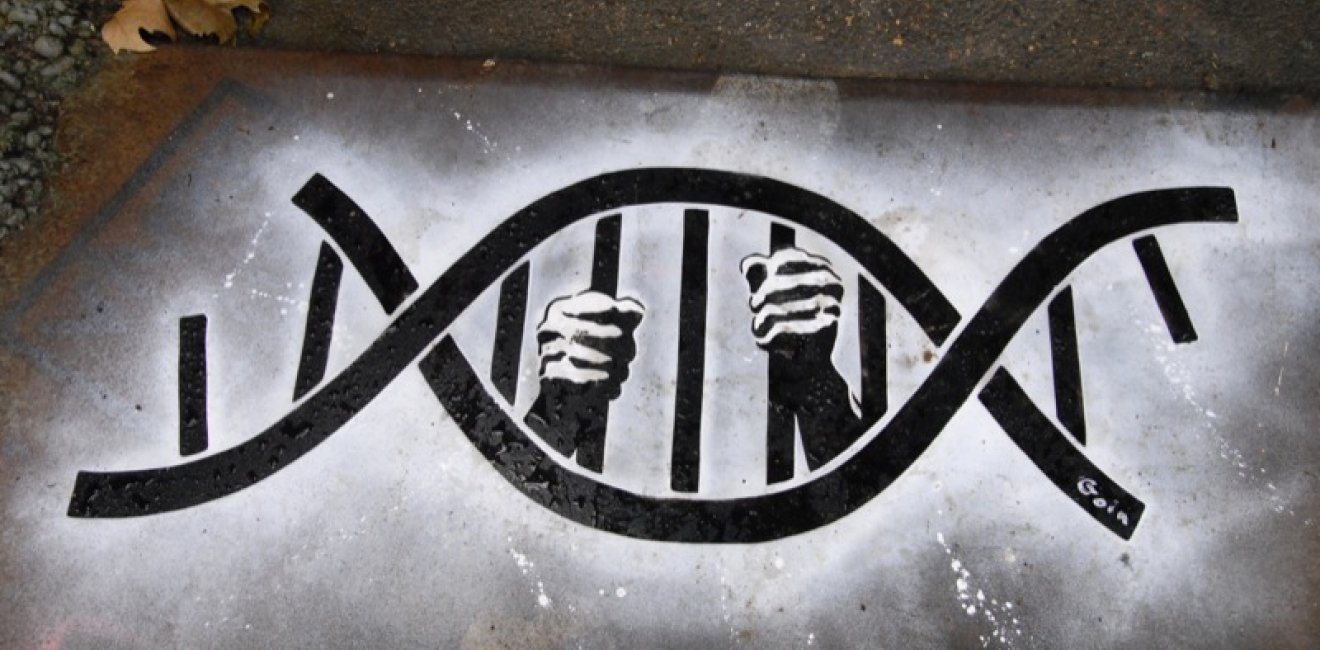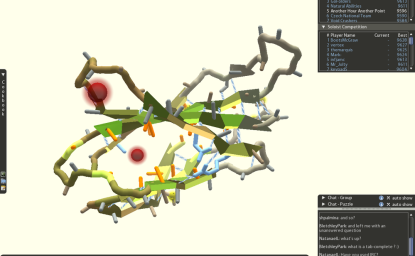From designer babies to women whose genitals smell like peaches, 2014 graced us with a taste of the hope, hype and superficiality of business as usual in Silicon Valley. It is tempting to listen to those who tell us that there is a gene-hack to solve every “problem”—that DNA is just a code to personalize at will.
This brand of genetic determinism has invaded all realms of life, from our dating scene to our social networks. 23andMe genetic-test results flourish on Facebook and OkCupid. Better still, the online-dating platform SingldOut matches partners based on the personality traits supposedly determined by their DNA. Even a recent study from Yale University concluded that our friends resemble us genetically. To cap it off, a subfield of political science now studies the heritability of temperamental and personality traits, which influence political values and decision-making. This becomes more sobering when one considers that scientists at Mount Sinai Hospital in New York are investigating the genetic cause of suicide in the hope of developing suicide DNA tests.
This is politics, love and death in the age of genetic imperialism, but society is becoming increasingly aware of what our genes can and cannot tell us about our identities and how they evolve.
The field of epigenetics contradicts the reductionist idea that we are controlled only by the DNA sequences we inherited. Epigenetics studies DNA as it evolves: the changes in gene expression that are not due to changes in DNA sequence. Researchers at UCLA and the University of North Carolina at Chapel Hill, for example, have observed how social isolation affects gene expression and wellbeing. Day by day, year after year, our surroundings influence not only our moods and dispositions, but also the functioning of our cells. Our genetics is much more than the succession of the letters in the book of life; it is genes in relation and in expression.
The same goes for our identity, which is above all relational and mediated. More than half a century ago, Jean-Paul Sartre discarded determinist perspectives about human nature: “Man exists, turns up, appears on the scene, and, only afterwards, defines himself.”
We see here a blow not only to the essentialist notion that one’s identity is an inborn and unalterable quality, but also to the reductionist understanding of the interferences between genetics and identity. Our genomes, as much as our identities, are constantly evolving.
The dominant voices behind consumer genetics ignore this complexity and stick to a simple narrative in which our genes have the power to tell us who we are. Without this “Genes-R-Us” mantra there would be no quick and easy profit to make out of the secrets hidden in our cells, but something more is at stake. The powerful and lucrative alliance between genetic determinism and a data-driven society has made networks—genetic and social—the new architects of our exchanges, the new masters of our digital identities.
The online dating platform SingldOut says it is trying “to bridge the gap between the digital and biological worlds of love” by working with the professional networking site LinkedIn and the genetic testing company Instant Chemistry to match people with gene-based affinity. Myriad Genetics recently launched a social media campaign (with the #ProstateAnswers hashtag) advising men to take its Prolaris genetic test for prostate cancer. The most sophisticated example is still 23andMe, which has developed a set of networking tools for its consumers to share genetic results online with family members and friends. The company also has a “compare genes” portal where users can select a profile with which they will share, compare and blog about their results.
These new forms of interactions are helpful when they allow patients to talk about their health and conditions, to share advice and seek peer-support. Without denying these benefits, we should also question how this flow of personal genetic information circulates within social networks and influences the shape of our identities.
What would it mean to live in a society where people seek only “the significant same,” connecting with those who share supposedly compatible genetic profiles in love, friendship or politics? Our regard for, and the social importance of, “the constitutive other” would surely be diminished, but what we find even more troubling is that such a data-driven society also bears the potential to promote a form of determinism—call it socio-genetic engineering.
Under this rubric, marketers (or even policymakers) not only seek to influence and change people’s behavior based on their genetic characteristics, but also encourage them to tweak their (or their offspring’s) DNA in an effort to fit prescribed ideals and modalities.
The reason we need to be vigilant is that reductionist discourses tend to infiltrate both genetic and big data enterprises. Could these discourses imperceptibly close rather than open the prospect for us to decide what we want to become—what we want our futures to be? Could such discourses also “hide rather than reveal the deepest sources of social ills,” which shape the evolution of our genes and identities? To some extent, our biological existences are still profoundly influenced, empowered and constrained by where we live and how much money we can rely on to better ourselves through education and access to care.
Reductionist aspirations that ignore social ills and contingencies will tend to crystallize our genetic and digital divides and, in turn, influence who we have a chance to become.
The opinions expressed here are solely those of the authors.
This article was originally published in Scientific American.






